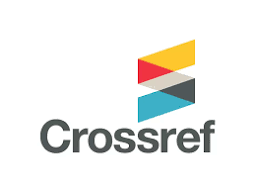Are the discoveries directed to applications? Translating the status of translational research in Peshawar, Pakistan
DOI:
https://doi.org/10.59736/IJP.22.03.903Keywords:
Translational research, Healthcare professionals, Awareness, Peshawar, PakistanAbstract
Background: Translational research plays a pivotal role in transforming basic scientific discoveries into practical applications, such as drugs and treatments, to address community health needs. This study aims to assess the awareness and perceptions of translational research among healthcare professionals in Peshawar, Pakistan.
Methods: A cross-sectional descriptive design was employed, with data collected between January and July 2023 from public and private tertiary care hospitals in Peshawar, Pakistan. The study was approved by Ethical review board of Northwest School of Medicine via letter number: IRB & EC/2022-SM/074 dated: 15 Nov 2022. A sample size of 472 healthcare professionals was determined using the OpenEpi sample size calculator. The study utilized a self-structured questionnaire covering demographic information, awareness of translational research, and knowledge of its various aspects. Data analysis was performed using SPSS version 26, employing descriptive statistics and a one-sample t-test.
Results: The study included 472 participants, with a mean age of 30.8 years, comprising various healthcare roles. Gender distribution showed 62.7% males and 37.3% females. Only 25% of respondents reported familiarity with translational research, while 75% indicated a lack of awareness. Information sources varied, with conferences/seminars (16.1%) and colleagues (5.5%) being prominent. Regarding the understanding of translational research, 64.2% admitted to having no idea. Identified barriers included lack of resources (14.8%), lack of awareness (7.6%), and lack of a sense of responsibility (1.3%). A significant majority (87.3%) reported poor knowledge of translational research, while only 12.7% indicated good knowledge.
Conclusion: The findings highlight a substantial lack of awareness and understanding of translational research among healthcare professionals in Pakistan.
References
Woolf SH. The meaning of translational research and why it matters. JAMA. 2008 Jan 9; 299(2):211-3. doi: 10.1001/jama.2007.26.
Hörig H, Marincola E, Marincola FM. Obstacles and opportunities in translational research. Nat Med. 2005 Jul; 11(7):705-8.
Trochim W, Kane C, Graham MJ, Pincus HA. Evaluating translational research: a process marker model. Clin Transl Sci. 2011 Jun; 4(3):153-62.
Ahmed M. Enough quantity: time to focus on quality of researchers in Pakistan. Int High Educ. 2017 Sep 2(91):24-5.
Leask M, Jumani NB. MESH Pakistan: prospects and challenges. J Educ Teach. 2015 Oct 20; 41(5):586-96.
Morgan M, Barry CA, Donovan JL, Sandall J, Wolfe CDA, Boaz A. Implementing 'translational' biomedical research: convergence and divergence among clinical and basic scientists. Soc Sci Med. 2011; 73(7):945-52.
Chen H. Stem cell governance in China: from bench to bedside? New Genet Soc. 2009; 28(3):267-82.
Wainwright SP, Williams C, Michael M, Farsides B, Cribb A. From bench to bedside? Biomedical scientists' expectations of stem cell science as a future therapy for diabetes. Soc Sci Med. 2006; 63(8):2052-64.
Gupta SK, Nayak RP, Shivaranjani R, Vidyarthi SK. A questionnaire study on the knowledge, attitude, and the practice of pharmacovigilance among the healthcare professionals in a teaching hospital in South India. Perspect Clin Res. 2015 Jan; 6(1):45.
González-Saldivar G, Rodríguez-Gutiérrez R, Viramontes-Madrid JL, Salcido-Montenegro A, Carlos-Reyna KE, Treviño-Alvarez AM, et al. Participants’ perception of pharmaceutical clinical research: a cross-sectional controlled study. Patient Prefer Adherence. 2016; 10:727-34.
Durant RW, Wenzel JA, Scarinci IC, Paterniti DA, Fouad MN, Hurd TC, et al. Perspectives on barriers and facilitators to minority recruitment for clinical trials among cancer center leaders, investigators, research staff, and referring clinicians: enhancing minority participation in clinical trials (EMPaCT). Cancer. 2014; 120 Suppl 7:1097-105. doi: 10.1002/cncr.28574
Wang JH, Sheppard VB, Liang W, Ma GX, Maxwell AE. Recruiting Chinese Americans into cancer screening intervention trials: strategies and outcomes. Clin Trials. 2014; 11:167-77. doi: 10.1177/1740774513518849.
Lander B, Hanley GE, Atkinson-Grosjean J. Clinician-scientists in Canada: barriers to career entry and progress. PLoS One. 2010 Oct 4; 5(10):e13168. doi: 10.1371/journal.pone.0013168.
Comeau DL, Escoffery C, Freedman A, et al. Improving clinical and translational research training: a qualitative evaluation of the Atlanta Clinical and Translational Science Institute KL2-mentored research scholars program. J Investig Med. 2017 Jan; 65(1):23-31. doi: 10.1136/jim-2016-000143.
Petrelli A, Prakken BJ, Rosenblum ND, et al. Developing translational medicine professionals: the Marie Sklodowska-Curie action model. J Investig Med. 2017 Jan; 65(1):23-31. doi: 10.1136/jim-2016-000143.
Additional Files
Published
Issue
Section
License
Copyright (c) 2024 Sarwat Jahan, Salman Zahir, Khansa Khan, Abdul Moez, Emad Khan, Amir Zaman Khan

This work is licensed under a Creative Commons Attribution-NonCommercial 4.0 International License.
Readers may “Share-copy and redistribute the material in any medium or format” and “Adapt-remix, transform, and build upon the material”. The readers must give appropriate credit to the source of the material and indicate if changes were made to the material. Readers may not use the material for commercial purpose. The readers may not apply legal terms or technological measures that legally restrict others from doing anything the license permits.


